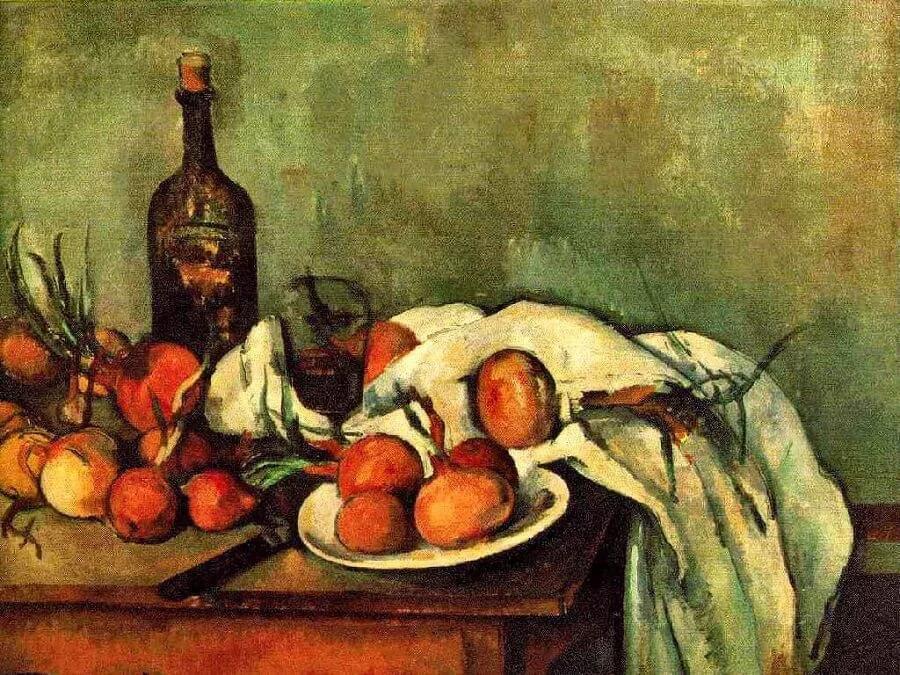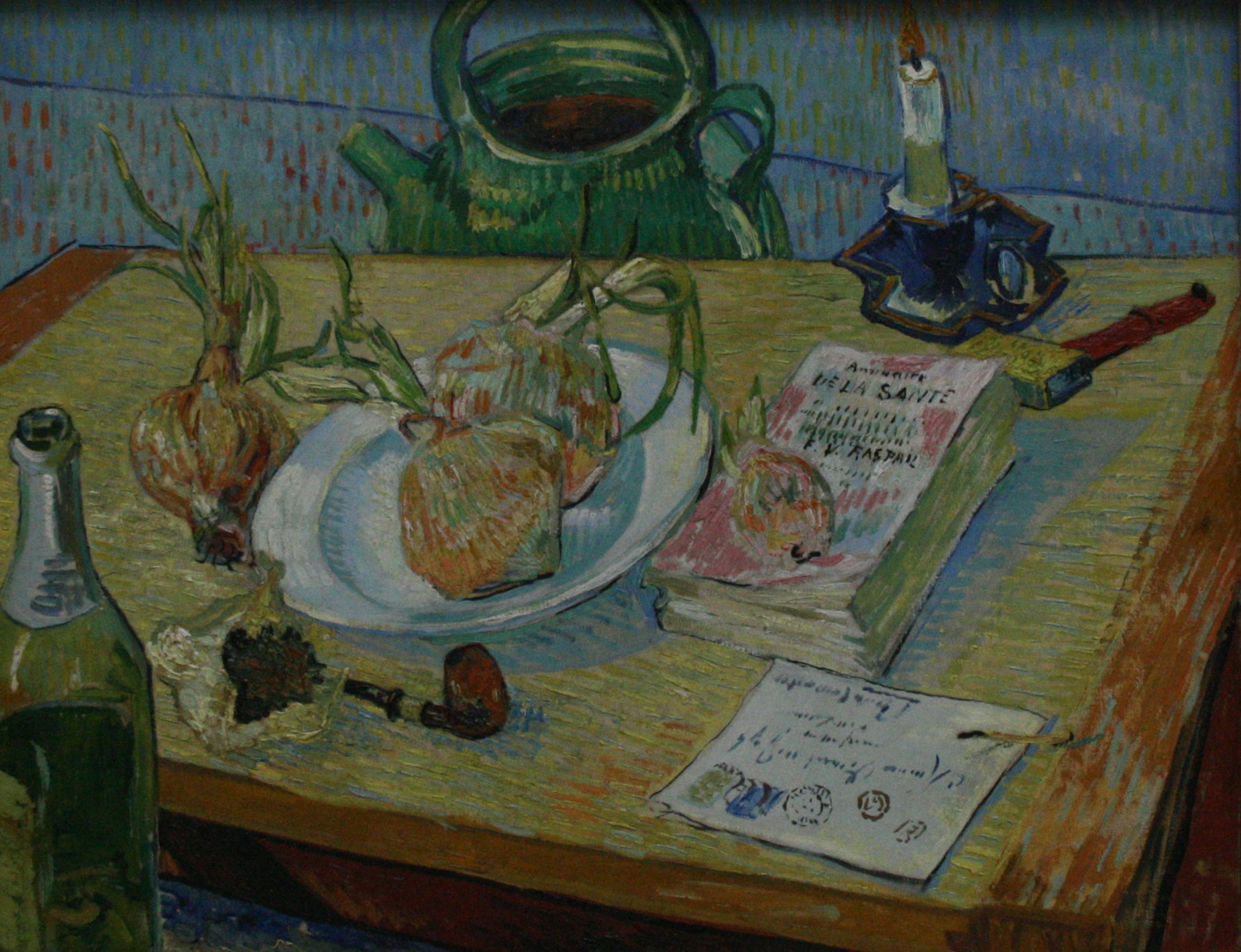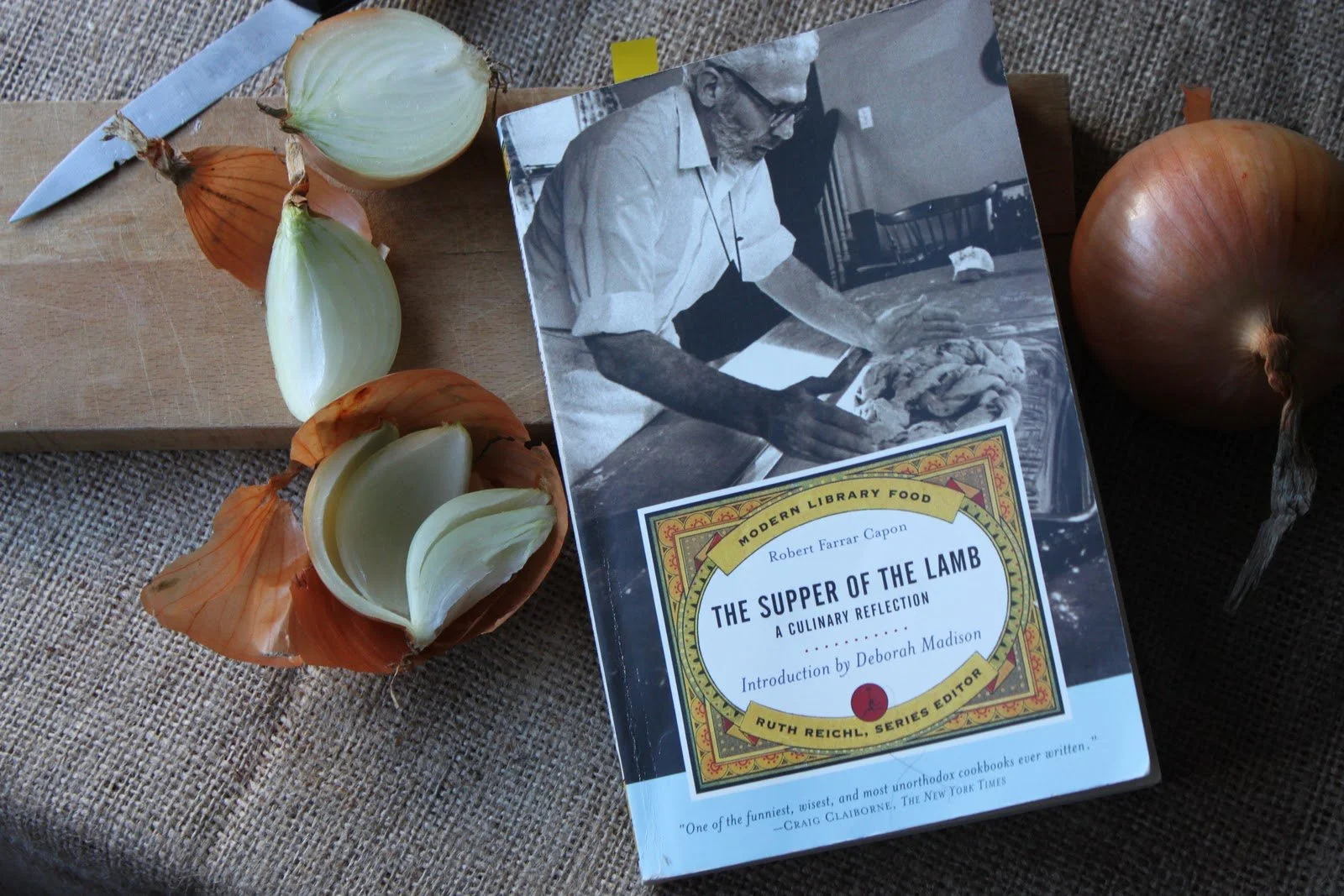Onions
Cezanne and his onions…
It turns out I really do like onions. . . much to Ned’s chagrin. I think somewhere included in the unspoken parts of our marriage vows we both agreed we would never like onions. It’s up there with “and we will also always enjoy the music of Simple Minds.” But I do like onions. Stuffed in a chicken with lemons and rosemary or sautéed in a pan with oil and added to potatoes and sausages (I’ll sauté red peppers for him), and red onions in a salad with spinach, strawberries, and poppyseed dressing. I have given up on not adding them to my favorite soups and feeling bad about it. I am not sure he doesn’t want me to do what his Grandmama did—add the onions on top of the dish and then take them off before she served her husband, Dr. Bustard.. Or maybe he has given up. Onions add so much flavor. To Ned’s credit he has added tomatoes to his list of foods he likes… which he didn’t when we got married. Tomatoes are basically their own food group for me.
This week I discovered this lovely poem by Naomi Shihab Nye about onions (I need to look up more of her poems). This poem of course reminded me of the section in Supper of the Lamb: A Culinary Reflection by Robert Farrar Capon on onions. And of course, then I had to see if Cezanne and van Gogh used any onions in their still life paintings (they did… not a lot of onion issues with them).
The Traveling Onion
Naomi Shihab Nye
It is believed that the onion originally came from India. In Egypt it was an
object of worship —why I haven’t been able to find out. From Egypt the onion
entered Greece and on to Italy, thence into all of Europe.” — Better Living Cookbook
When I think how far the onion has traveled
just to enter my stew today, I could kneel and praise
all small forgotten miracles,
crackly paper peeling on the drainboard,
pearly layers in smooth agreement,
the way the knife enters onion
and onion falls apart on the chopping block,
a history revealed.
And I would never scold the onion
for causing tears.
It is right that tears fall
for something small and forgotten.
How at meal, we sit to eat,
commenting on texture of meat or herbal aroma
but never on the translucence of onion,
now limp, now divided,
or its traditionally honorable career:
For the sake of others,
disappear.
From Supper of the Lamb:
“Between the onion and the parsley, therefore, I shall give the summation of my case for paying attention. Man's real work is to look at the things of the world and to love them for what they are. That is, after all, what God does, and man was not made in God's image for nothing. The fruits of his attention can be seen in all the arts, crafts, and sciences. It can cost him time and effort, but it pays handsomely. If an hour can be spent on one onion, think how much regarding it took on the part of that old Russian who looked at onions and church spires long enough to come up with St. Basil's Cathedral.”
“For somehow, beneath this gorgeous paradigm of unnecessary being, lies the Act by which it exists. You have just now reduced it to its parts, shivered it into echoes, and pressed it to a memory, but you have also caught the hint that a thing is more than the sum of all the insubstantialities that comprise it. Hopefully, you will never again argue that the solidities of the world are mere matters of accident, creatures of air and darkness, temporary and meaningless shapes out of nothing. Perhaps now you have seen at least dimly that the uniquenesses of creation are the result of continuous creative support, of effective regard by no mean lover. He likes onions, therefore they are. The fit, the colors, the smell, the tensions, the tastes, the textures, the likes, the shapes are a response, not to some forgotten decree that there may as well be onions as turnips, but to His present delight - His intimate and immediate joy in all you have seen, and in the thousand other wonders you do not even suspect. With Peter, the onion says, Lord, it is good for us to be here. Yes, says God. Tov, Very good.”
“O Lord, refresh our sensibilities. Give us this day our daily taste. Restore to us soups that spoons will not sink in, and sauces which are never the same twice. Raise up among us stews with more gravy than we have bread to blot it with, and casseroles that put starch and substance in our limp modernity. Take away our fear of fat and make us glad of the oil which ran upon Aaron's beard. Give us pasta with a hundred fillings, and rice in a thousand variations. Above all, give us grace to live as true men - to fast till we come to a refreshed sense of what we have and then to dine gratefully on all that comes to hand. Drive far from us, O Most Bountiful, all creatures of air and darkness; cast out the demons that possess us; deliver us from the fear of calories and the bondage of nutrition; and set us free once more in our own land, where we shall serve Thee as Thou hast blessed us - with the dew of heaven, the fatness of the earth, and plenty of corn and wine. Amen.”
a van Gogh
a van Gogh



